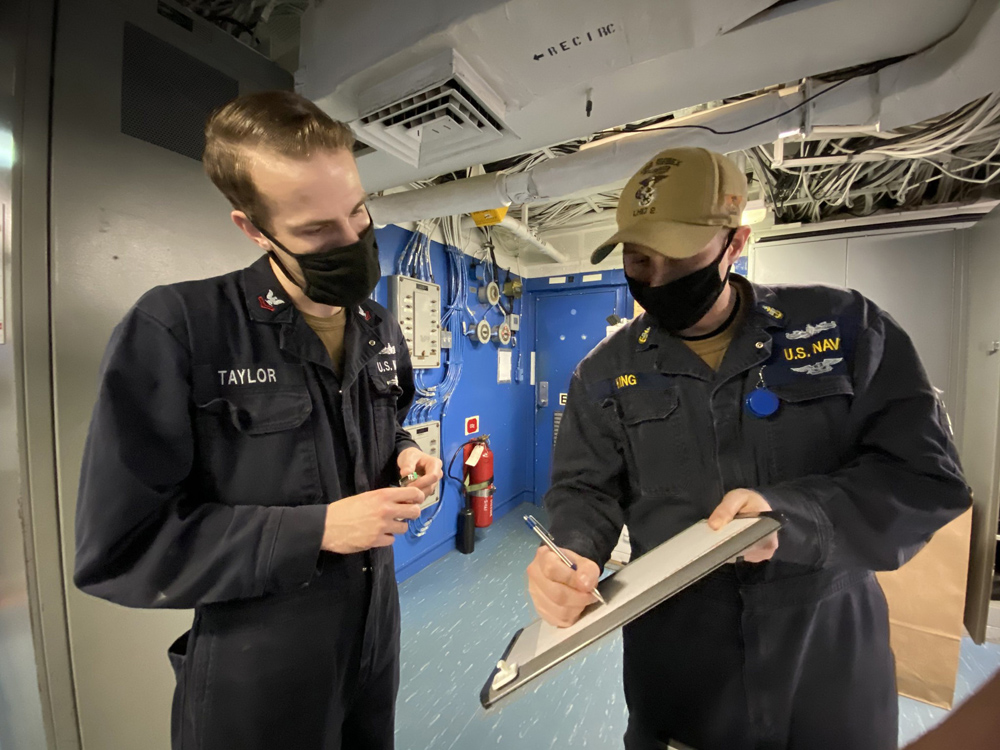Joe’s Stories – old, new, mostly true
Remembering a father
It was a warm day in July when my father, Joe, came home from a month or more in the hospital. It was what he wanted and the doctor agreed, knowing that the end was near and we were willing to care for him with outside nursing help.
As he lay there on his death-bed, we talked a little about his life. Foremost in his mind was the fact that he had not died or been killed earlier in life. “I never thought I would live to be 72 years old,” he said. There was good reason for that feeling. Born in Germany in 1898, he was the eldest of 12 siblings that lived. Three others had died in infancy. Two brothers died in WWII and a third died of heart failure at age 54.
He grew up as a typical farm child, attending eight years of basic school and two years of Agricultural apprenticeship. In 1916 he answered his country’s call, and on November 20, 1916 enlisted in the Landsturm branch of the Army. After training they were sent to the French front.
He hated being in the trenches and volunteered for almost every patrol they needed. He preferred being out in the woods with two or three comrades. On one such patrol he suffered grenade shrapnel wounds to his back and thighs, was treated by medics and soon returned to duty. Two months later, on a patrol near La Basse Canal, he was struck multiple times by grenade shrapnel with more serious results, for one had struck his skull just above his right eye. He was taken to a hospital in Lille, France for removal of his eye, then transferred to Munich for recovery. It was there he began the habit that was likely the cause of his fatal illness. Being very restless in the hospital, a doctor advised him to smoke to calm his nerves. He did and never quit.
After immigrating to the United States in 1923 he worked several jobs, and in 1929 started farming on the 60 acres he and his wife Anna had purchased in Parma. There were the usual farm accidents, the worst of which was being kicked in the chest by a horse. Ribs were broken that resulted in him having a lump on his chest. Later he began doing carpenter work during which he fell off several scaffolds, was struck by falling objects and suffered many minor wounds that went with the trade. He survived them with no ill effects.
All these were the reasons he felt lucky to be alive, even as lung cancer was ending his life. Now we knew why he was so adamant about us getting started on building a house on the farm shortly after we married. “I’ve worked on hundreds of homes for other people and want to build one more – yours,” he said. About halfway through the process he admitted one day that he was “all shot.” We had realized there was something wrong, but he wouldn’t admit it. A visit to the doctor and x-rays revealed the lung cancer that had spread to his bone. It also revealed something even he didn’t know – shrapnel remnants that were imbedded in his chest. We all knew about the one visible as a dark bump in his forearm, but he carried even more souvenirs of his service.
Radiation treatments were begun which slowed the effect of the cancer but also damaged his skeletal structure, which limited his mobility, eventually resulting in hospitalization. But why had he insisted on coming home that weekend?
We had a son Peter, four, and a daughter Regina, two, and a third child on the way, which we hadn’t told him about. When I did tell him that day he smiled and said, “I suspected that was the case.”
It was a Sunday and Anna had made that universal remedy for illness – chicken soup. She was feeding him when he choked. Nurse Heide, my wife, performed mouth to mouth and he came back like nothing had happened. The doctor was called and came immediately. He asked Joe who he was and Joe, looking puzzled, said, “Dr. Grainer of course.” Dr. Grainer asked him what happened and Joe said, “She was feeding me chicken soup that I think she made from the oldest hen in the coop.” His wit, one liner skills and humor were still there!
Our Pastor was called and also came quickly. We left them alone in the room. When the Pastor came out we went in. There was a noticeable sense of contentment on Joe’s countenance. Not long after that he choked again and there was no attempt to revive him. That was around 3 p.m. on July 19, 1970. The doctor came again, officially declared him dead and notified the funeral home. The life he lived was over and there would only be memories.
Of course there were the usual things like documents, pictures, his tools, etc., but later we would find other things he left as reminders. One was discovered in 2004 as we were removing shingles from the house in advance of building an addition. It was a 13-inch wide cedar shingle and turning it over revealed a signature written in carpenter pencil. It reads, “J. Reinschmidt November 1939.” I wonder how many more shingles he signed and installed around the house, but I’ll let somebody else find those. Later that year when we were remodeling the kitchen, I removed a piece of wallboard and was surprised by a bunch of empty Camel cigarette wrappers tumbling out. There could only be one person responsible for that. Even now, I never know when some piece of wood I find or remove from somewhere will have some sign of him on the back of it.
I don’t recall us ever expressing any words of love or endearment to each other, but we both could live and die knowing there was a bond beyond what words could describe. Auf Wiedersehen – till we meet again!



